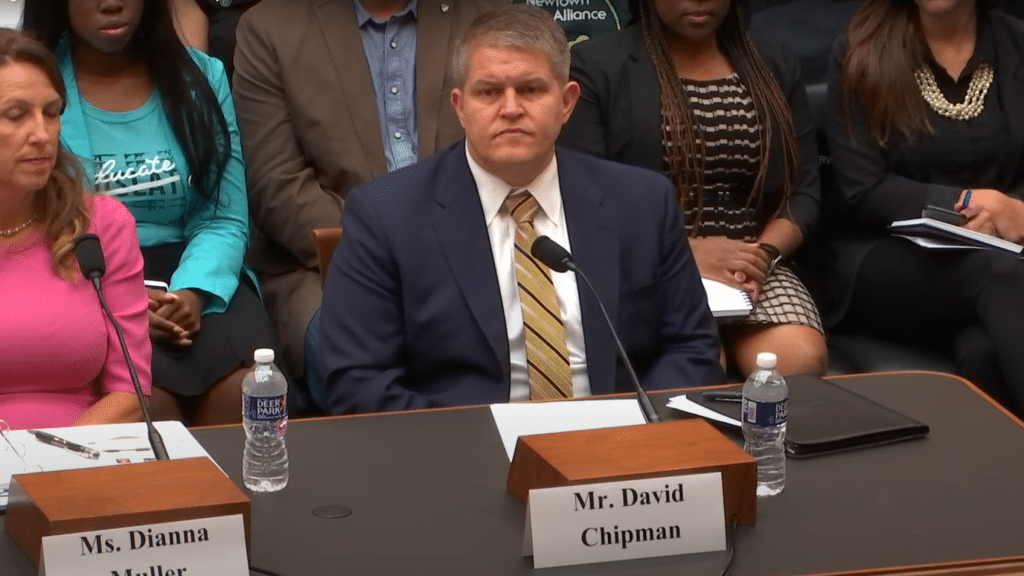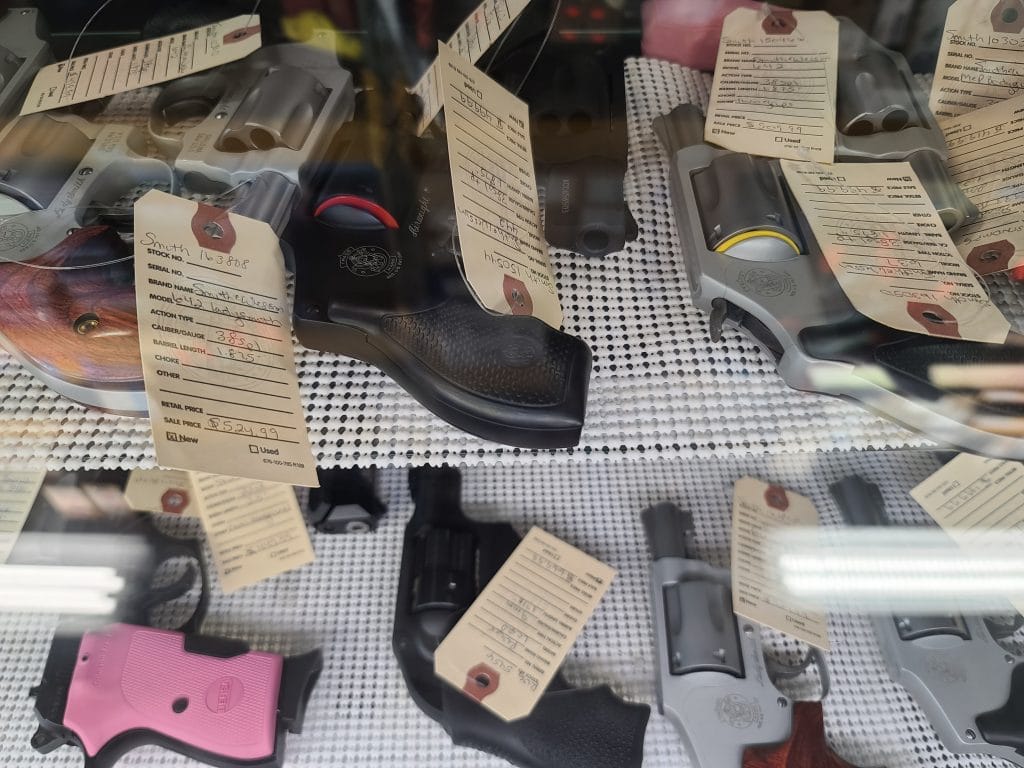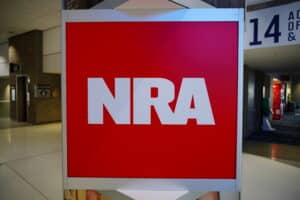The NRA reaffirmed the path it has chosen to go down this week with the re-election of Wayne LaPierre as CEO. It’s a decision that will likely have a profound effect on the future of the group one way or the other. I was at the members and board meetings last weekend, and I have a lot more information from what I saw there that will be coming soon.
But, before we focus on the future of the NRA, I want to wrap up what happened with President Biden’s failed ATF nomination. There is a media narrative that’s begun to form, and I don’t think it’s accurate. So, I give my take on what’s wrong with it, and what really happened.
I also noticed some signs in the latest gun sales numbers that make me think we could see new record levels again soon. The new normal of the past 5 months has been quite high, but the next three months could see us return to all-time sales levels. If the stars align properly…
Plus, The Atlantic’s Adam Serwer talks about the Supreme Court as well as guns and race in America on the podcast!

Analysis: The Problem With the Media Narrative on David Chipman’s Failed ATF Nomination [Member Exclusive]
By Stephen Gutowski
President Joe Biden’s failed ATF pick has been on a bit of a media tour lately. This tour has been wrapped in a particular narrative. But it’s one with several problems.
In most major media stories about David Chipman’s nomination being pulled, he is made out to be the victim of a smear campaign orchestrated by the gun industry and a single holdout senator. It’s a narrative Chipman himself has forwarded in interviews with The New York Times, USA Today, and The Trace.
The main villain in this play is the National Shooting Sports Foundation (NSSF). The industry trade group has begun to overtake the NRA in some circles of the gun-control movement. And the ATF nomination has been painted as the group’s coming of age.
The key moment in Chipman’s nomination that led to his downfall, we’re told, is when the NSSF shared a Daily Mail report about his time at Waco in the aftermath of the disastrous government raid on a cult compound. That report included a false accusation that Chipman was pictured standing in front of the ashes of the compound. After the picture was confirmed by the DOJ not to be a picture of Chipman, NSSF removed it from its website.
But the damage was already done, according to Chipman and those covering him. That false picture combined with an unsupported claim he lost his gun seriously harmed his chances. Or so we’re told.
That’s a huge stretch, though.
Yes, the debunked picture has spread around online. But, my Senate sources don’t believe the vast majority of senators even saw it. And none of them ever brought it up as something that impacted their votes in any way.
Instead, Chipman’s nomination was always bound to be a hard sell to any Republican and most moderate Democrats. His years spent working directly for gun-control organizations and making heating, and condescending remarks about gun owners and the industry were always going to be difficult to overcome.
His confirmation hearing performance did not help things. Doubling down on his support for gun restrictions that are more severe than what nearly the entire Democratic caucus is in favor of and failing to define “assault weapon” even while calling to ban them likely hurt his nomination a bit.
And the opposition from the industry surely didn’t help either.
Senator Angus King (I., Maine) does appear to have been swayed by the idea that Chipman was too much of an activist to make a good ATF director. Certainly, the industry argued his history would impact the agency’s relationship with gun dealers. And it’s likely Senator King heard from people in the industry.
But the narrative pushed by The New York Times and others is that Senator King was the lone roadblock, and the industry was the only one making that argument.
First, there were at least four Democratic senators who never publicly committed to voting for Chipman. It’s possible Senators Joe Manchin (D., W.Va.), Kyrsten Sinema (D., Ariz.), and John Tester (D., Mont.) were planning to vote for him anyway, but there’s no guarantee there. After all, Senator Maggie Hassan (D., N.H.) came out and publicly said she’d vote for him. Why not the others if they were ready to pull the trigger?
Second, it wasn’t just the industry who warned Chipman’s appointment would hurt the agency’s relationship with dealers. Current and former ATF agents themselves have made the same argument.
“There’s no system that alerts ATF,” one former agent told The Reload in July. “The person who has to alert us is that licensed dealer. If they don’t pick up the phone and call us, we’ll never know.”
Seven former agents even sent a letter to the Senate Judiciary Committee opposing his nomination on the same grounds.
So, Chipman’s nomination was a hard sell to begin with, and then he had a rough confirmation hearing. After that, nothing but bad news on Chipman’s past came out. He failed to disclose interviews on Chinese state media and deleted many controversial tweets.
Most importantly, ATF agents corroborated the existence of a racial complaint against Chipman. Then, a black former agent directly accused him of attempting to sideline his career with a false accusation of cheating on a promotion exam.
“I believe it had to have been a bias,” the agent, who spent more than 25 years at the agency, told The Reload in August. “My answers were just ‘too good.’ And my thought is he just said, ‘this black guy could not have answered this well if he wasn’t cheating.’”
The agent’s story and the previous allegations of racist remarks received little attention in the aftermath of the nomination, even though they had far more impact on the Senate fight than the fake Waco picture. Major media outlets from The Washington Post to CNN and MSNBC skipped the allegations altogether even though they led every Republican on the Judiciary Committee to call for a second hearing and Minority Leader Mitch McConnell to call for his withdraw.
To their credit, after The New York Times skipped the accusations, USA Today and The Trace asked Chipman about them. He confirmed he did allege a black agent cheated on a promotion exam but denied any racial motive.
“There was no way I would have made it out of ATF honorably if there was merit to any of that,” Chipman said. “My frustration was that DOJ knew all of these facts and could have put a quick end to it. It hurt me personally.”
However, the mention of the story comes well after the previously-mentioned narrative and a slew of Chipman’s own complaints.
And Chipman does have some legitimate complaints with the Biden Administration. If the administration did nothing to help him prepare for his confirmation hearing, that’s political malpractice. Ahe’se’s right that the White House remained practically silent while the negative stories about him poured out.
However, unlike what Chipman claimed, the Department of Justice did defend him against accusations of racism.
Either way, it’s odd to watch major media fraChipman’sn’s story as a tragedy with him as the victim. The black agent he accused of cheating claims he was exonerated but said the ordeal sidelined him for several years nonetheless. He never got a promotion and retired a few years, disillusioned with the agency where he worked 25 years.
If there’s a victim in this story, it’s him.
Podcast: The Atlantic’s Adam Serwer on Guns and Race in America [Member Early Access]
By Stephen Gutowski
This week, I talk to The Atlantic’s Adam Sewer about how guns and race interact in America both historically and in the modern-day.
He talked about his recent back and forth with Supreme Court justice Samuel Alito over Texas’s new abortion law. We disagreed over whether the same tactic of deferring enforcement to civil suits brought by regular citizens rather than government actors will be tried out by gun-control advocates in some parts of the country. He thinks it won’t because activists fear review by the court, but I’m not so sure.
From there, we discuss the court’s upcoming gun-carry case and the racist history of various gun-permitting laws in America. He explains why a majority of Black Americans support gun-control measures despite a widespread acknowledgment those laws will be disproportionately used against members of their community.
Then we talked about Beto O’Rourke’s plans to run for governor in Adam’s adopted home of Texas. We discuss the political practicality of Beto’s famous pledge to take everyone’s AR-15s and AK-47s.
We also discuss the rise in minority gun ownership and what it means for the future of gun politics in America.
Plus, I give on-the-ground insight into the re-election of Wayne LaPierre to run the NRA. I was the only reporter sitting outside the board meeting where LaPierre faced his first challenge in years, and I give the details of what went down. And I share the latest gun sales numbers for 2021 now that they’ve passed 2019’s full-year total.
You can listen to the podcast on your favorite podcasting app or by clicking here.
You can also watch the video podcast on our YouTube channel.

Analysis: Gun Sales Could Leapfrog Last Year as Fall Arrives [Member Exclusive]
By Stephen Gutowski
2021 has settled firmly into a definitive spot on the all-time gun sales list.
As we reported this week, gun-related background checks topped 13.7 million at the end of September. That puts the first nine months of 2021 beyond what was sold in all of 2019. But it remains below what was sold by this point in 2020.
But it’s possible that could change over the last three months of the year.
There are a couple of factors at play that could make that possibility a reality. The first is the seasonal nature of gun sales. We’re coming out of the summer slow period and headed into the fall, where we usually see the strongest sales of the year. In fact, the upswing has already started.
“September also saw firearm sales continue an incremental month-over-month climb, with over 20,000 more background checks for gun sales than were recorded in August 2021,” Mark Oliva, a National Shooting Sports Foundation spokesman, said earlier this week. “Firearm sales typically rise during autumn months as hunters get back into the woods, fields and marshes for hunting season and gun buyers take advantage of new models and holiday sales.”
Last year, things were a bit different. The most significant surge in gun sales came in March and June because of the extraordinary circumstances surrounding the pandemic and the racial unrest the country experienced. Then things slowed down a bit from there.
The further we got from the lockdowns, food shortages, and rioting, the more gun sales cooled.
Of course, sales remained incredibly high since those concerns didn’t completely abate (and they still haven’t) while the more traditional motivator of sales came into play: politics. With Democrat and staunch gun-control advocate winning the election, that motivator increased further at the end of 2020. And with Biden pushing executive actions to broaden the authority of the ATF and outlaw millions of AR-15 pistols, the political motivation to buy guns is at a new level.
In 2020, we saw a precipitous drop in gun sales between June and September. In 2021, we’ve seen a slight but steady increase instead. So, I’m looking for whether things will continue to climb and overtake 2020’s monthly numbers in October, November, and December.
Add in the fact that inventory across the industry is likely in a better place than a year ago, and that possibility becomes more plausible.

I don’t have a magic ball here, and I don’t know for sure if that will happen. Even if it does, 2021 almost certainly won’t be able to pass 2020’s total sales. 2020 ended the year with 21 million gun-related background checks. 2021 would have to average 2.4 million checks which would mean basically setting new all-time records each month.
But, the last three months of 2021 could pass the last three months of 2020. So, maybe we’ll get closer to that 21 million mark than you’d expect.
That’s it for now.
I’ll talk to you all again soon.
Thanks,
Stephen Gutowski
Founder
The Reload







